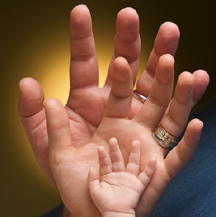Guess what? You have an estate. Your estate is made up of everything you own – car, real estate, bank accounts, investments, life insurance, furniture, and everything else you own or have an interest in. No matter how small, everyone has an estate. And you can’t take it with through the pearly gates when you’re gone.
Estate planning is one of the most important steps you can take to ensure that your property and health care wishes are honored, and that loved ones are provided for in your absence.
Unfortunately, most young adults do not have estate plans in place. They are usually concerned about the cost and often don’t consider themselves old enough to require a plan. These are common misconceptions. Estate planning does not have to carry a heavy price tag and is essential for both the young and old.
For example, if you have minor children, you should always name a guardian. If you don’t and something happens to you and your spouse, decisions will be made for you by the State of California. The state will decide who will raise you children. And if you don’t leave specific instructions that your property be held in trust for your minor children until they reach a certain age, they may receive a lump sum inheritance while they are still young and itching to go to Vegas in a Porsche.
And estate planning is not just about death. Consider how many people become disabled or incapacitated. What if these people have children? What if they own a business? What if they care for an elderly parent? Without a healthcare directive and power of attorney, who can make decisions regarding your healthcare or finances if something happens to you? Yep, the State of California.
The following are 8 common estate planning mistakes:
Mistake #1: Thinking That You’re Estate Is Too Small. Estate planning does not depend on how much stuff you have. It’s about how you handle what you have and will have in the future. Your net worth may influence the type of estate plan that’s right for you, but rarely is an estate too small to require some form of planning.
Mistake #2: Thinking You’re Too Young. Again, a lot of people think they are not old enough to need an estate plan. It’s surprising to see the number of obituaries for people in their 30’s, 40’s or 50’s. Everyone over the age of 18 should seriously consider having an estate plan, especially if they have young children.
Mistake #3: Failing to Plan for Incompetence. A common misconception is that estate planning is just a death planning tool. That’s just one piece of the pie. Every estate plan should also address what happens with you and your finances in the event of an accident or other unfortunate circumstance that may leave you unable to make your own decisions. Guardianship proceedings for a mentally incompetent adult are usually extremely burdensome and costly. A well-drafted estate plan will avoid this problem by incorporating an Advance Healthcare Directive and Financial Power of Attorney.
Mistake #4: Confusing Probate and Estate Taxes. Probate and estate taxes are separate animals. Probate is a court supervised process of administering the estate of a person who dies by resolving claims of creditors and finally distributing the property under the terms of a will. If no will exists, California determines who gets what. Unfortunately, probate can be a daunting, lengthy, and expensive process.
The estate tax (death tax) is a federal tax imposed on the transfer of your “taxable estate,” regardless of whether your property is transferred by will or trust. Avoiding probate does not necessarily avoid the estate tax. Likewise, just because your estate is not big enough to incur an estate tax does not mean you will avoid probate. In certain circumstances, however, probate may be avoided if the estate is small enough.
Mistake #5: Not Titling Assets Correctly. This is one of the most overlooked aspects of estate planning. When a trust is set up, assets need to be transferred into the trust. To do this requires changing title of the assets. Property that does not have a title or a documented owner, such as furniture, personal effects, and household goods must be listed in the Trust, an attachment, or amendment to the Trust as being owned by the Trust. Unless the assets are titled correctly, there’s a good chance that they will have to go through the probate process.
Also, people often misuse “probate shortcuts,” like joint ownership, payable on death accounts, and beneficiary designations. These could be useful. But they can ruin an estate plan if not properly integrated.
Mistake #6: Planning Around Specific Assets. Often, people dictate specifically what they want to happen to each specific item they own. The problem is, they may have different assets when they die or the value of the assets may have significantly changed in value. It’s usually a better idea to plan based on the “value” of your estate rather than specific assets.
Mistake #7: Do it Yourself Planning. Estate planning is more than just creating documents. It involves understanding the big picture of your finances and personal goals to determine the best system to accomplish your objectives. You cannot properly create an estate plan using software or internet forms any more than you can perform surgery using a medical website.
Mistake #8: No Estate Plan at All. Perhaps the worst mistake you can make is not having any estate plan at all. Roughly 70 percent of adults don’t have one. If you don’t have an estate plan, California has been kind enough to set one up for you. It just may not work the way you would like it to.
You owe it to yourself and your family to avoid mistakes and get a good estate plan in place. If you don’t, the legacy you leave may be one of chaos for your family to clean up when you are gone.
